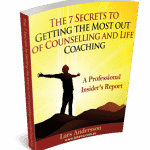The relationship team
This is the June 2012 issue of the Integrating Awareness Newsletter. The theme for this issue is The Relationship Team, with articles about:
- Formulating your wedding vows, so that they can help in times of difficulty;
- The four fundamental steps for ‘arguing constructively’ in your relationship;
- Loving relationship intimacy – how to revive it, when it has gone missing
Is your relationship team winning or losing?
When you form a relationship with someone, you give up all your individual freedom – true or false? True. And false. True, because if you want to have a relationship that actually works for both of you, you can no longer continue to operate as singles, who have no one else to take into consideration than themselves. False, because most of the individual freedom that you give up, will be instantly given back to you by your partner anyway.
The most important idea to grasp in order to become winners in the “Relationship Game” is that rather than being two people who are ‘single together’, a relationship is a team, consisting of two equally valuable individuals, who work together toward the fulfilment of both individuals. Hence, in a relationship team both individuals take on the responsibility of caring for the wellbeing of both members of the relationship team. Not only for their own. And not only for the other’s.
For most people this approach will require a major paradigm shift, since most of our life experiences have programmed us to primarily look after our own interests and needs. From this kind of programming, any time when there is a conflict or a disagreement, we will try to force a “solution” upon the other which makes sure that we come out on top, and leave it to them to look after their own needs.
Of course, in relationship with someone we care about, we usually won’t go for solutions that leave our partner entirely wanting, but we are nevertheless prepared to settle for solutions that are less than satisfying for them, as long as we are satisfied ourselves. And if there is enough in it for ourselves, then we will go to almost any length of manipulation, pressure, blackmail or force to have it the way we want it. This approach is commonly known as the “I win – you lose” approach, and when you have two people with intense investment in coming out the winner of such a battle, the fighting can become fierce and the consequences disastrous.
To avoid battles, and “keep the peace”, some people have learned that the best thing to do is to use the approach called “You win – I lose”. This approach is actually driven by the same old programming, just in its reversed format, which works a bit more insidiously. People who operate in this way, will agree to “solutions” in which they come out losing – but sooner or later they will make the other pay for it, one way or the other, usually capitalising on the guilt their partner has accumulated. So in the end they come out winning, by losing.
But of course, in a relationship team, if anyone is losing, the relationship team is losing. And if the relationship team is losing, so are both of the people in it. For the relationship team to win, both of the individuals must win, and the only approach that makes sense is “You win – I win – we win.” The only problem is, that very few people seem to know how to translate that fine piece of theory into practical action.
The primary ambition of the Fulfilling Relationship Approach is to help couples have a winning relationship team, i.e. a relationship that is truly fulfilling. Some of the strategies that may be helpful in this direction are covered in the articles below, others are available in other places on the Integrating Awareness website, and others still will appear later on as articles on the website and/or in future issues of the newsletter.
I hope you find the articles interesting, and perhaps even helpful!
And, of course, if you are in a relationship that is no longer quite as fulfilling as you would like it to be, please consider letting me help you get back on track again – contact me today for an appointment!
Articles
The Ultimate Wedding Vows
For your wedding vows to be of any use, once your wedding day is over, they need to reflect that you understand that your marriage will not always be a dance on a bed of rose petals, and they need to have built into them a strategy for dealing with the challenges that you can expect to encounter up ahead. Read more…
Arguing Constructively
Most couples who seek counselling for relationship problems, experience that the problem has become a wedge between them, which is pushing them apart. The first objective for the counselling must therefore be, to move the problem to a more empowering position for the two people involved, to help them get back to operating as a relationship team. Read more…
Loving Relationship Intimacy
Most couples find, after “the honeymoon period” is over, that they rarely have those long, beautiful moments of open, intimate sharing anymore. That the intimacy somehow goes missing in between working, hobbies and household chores. In order to know how to revive it, you need to understand the true meaning of intimacy. Read more…
I hope you found something that interested you in this issue of the Integrating Awareness Newsletter!
P.S. In case you haven’t discovered it yet, there is also a Facebook page for Integrating Awareness – Mindfulness in Counselling and Supervision that you may like… (please, do!)
Until the next time,
Be well and enjoy Being!
Lars Andersson

